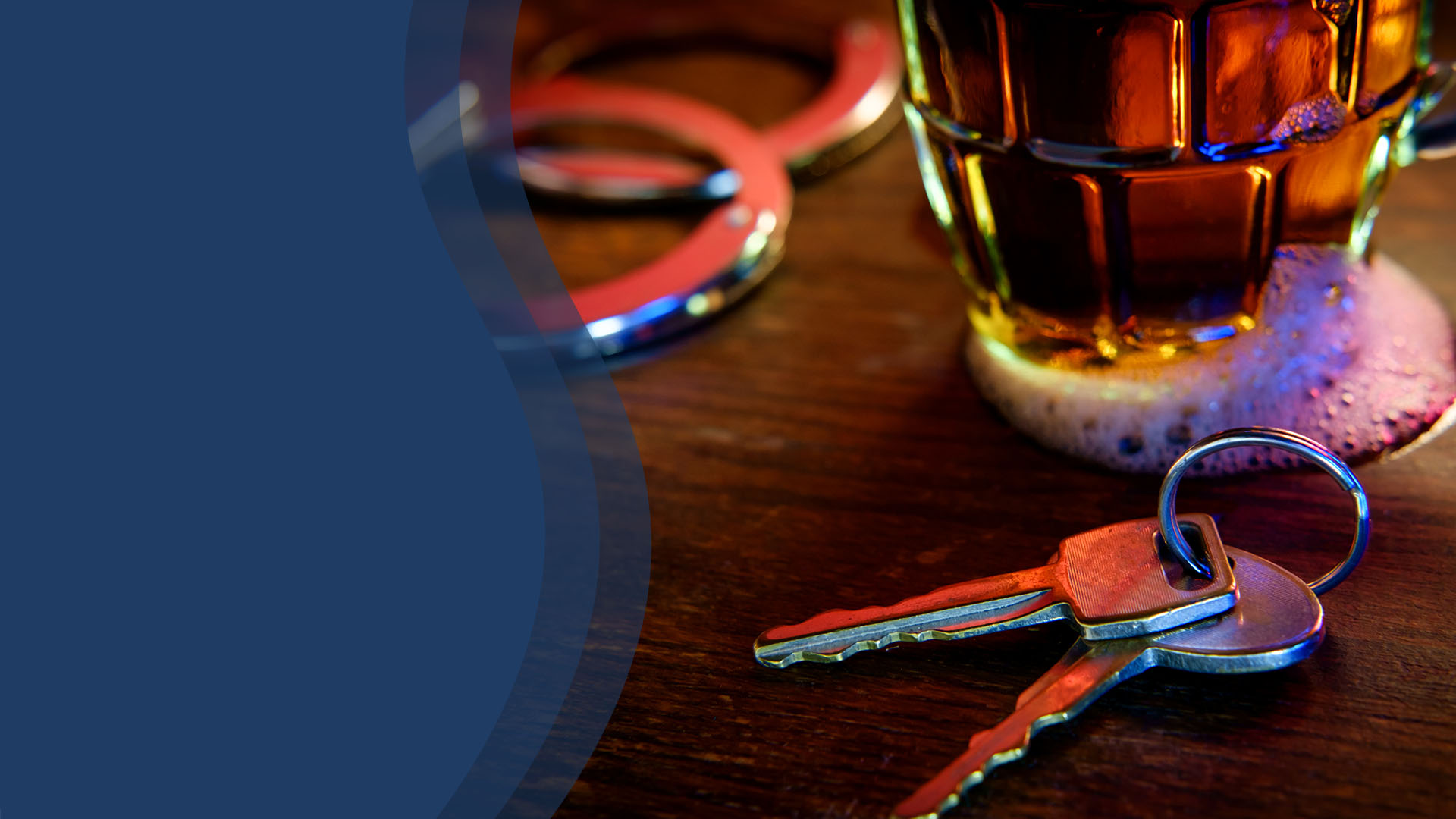New Hampshire DWI Lawyers
With Law Offices in Manchester, NH
Do You Need Legal Help?

Do You Need Legal Help?

Attorney John Tenn and his entire team are amazing people! If you need a lawyer, he is the man to call! He handled my case in a professional matter and took the stress out of it all.
![]()

The whole team were very professional and responsive. My case was effectively handled with good communication during the process. Very satisfied with the outcome. Highly recommend!
![]()

I was recently in need of a New Hampshire lawyer. I was put in touch with John Tenn. He went above and beyond for me to make sure I got the best help. Tenn and Tenn thank you for being so helpful!
![]()


James J. Tenn, Jr.
Attorney

Mary Elizabeth Tenn
Attorney

John J. Tenn
Attorney
Working hard to obtain the best results possible for our clients and fighting to protect their rights.

Enter your information below to receive your free pdf guide.
The charge of “Driving While Intoxicated” (DWI), otherwise known as “Driving Under the Influence” (DUI) or Operating Under the Influence (OUI) affects a large number of individuals each year. Statistics reveal that nearly 1.5 million Americans were arrested for DUI/DWI in 2006 in New Hampshire. A drunk driving offense is a serious criminal matter. A DUI/DWI conviction will result in significant fines, extended periods of license loss, alcohol programs and possible jail time.
If you have been charged with DUI or DWI in New Hampshire, you now face two battles. First, you must deal with a criminal prosecution in State Court. Second, the civil Administrative License Suspension from the New Hampshire Division of Motor Vehicles must also be challenged. In both cases, you will have to fight to retain your license. New Hampshire does not offer a restricted license or a so called “Cinderella” license that allows you to drive back and forth to work. Once your New Hampshire license or driving privileges have been suspended or revoked, you will not be able to drive in the State of New Hampshire.
A DWI case can involve many complicated legal and factual issues. Our skilled New Hampshire DWI defense lawyers will examine whether the police had a proper reason to initiate the motor vehicle stop, whether standardized field sobriety tests were properly administered and scored, whether the police had a legal basis to arrest you for DUI/DWI, and whether the officer properly advised you of your rights before submitting to a breath or blood test, among other issues.
In New Hampshire, DWI charges come with serious consequences. Let’s break down what you might be facing:
For a first-time offense, you’re looking at a Class B misdemeanor. This includes a fine starting at $500, along with mandatory license suspension ranging from nine months to two years. Additionally, you’ll need to undergo alcohol and drug abuse screening, followed by a full substance use disorder evaluation. Completing the Impaired Driver Education Program (IDEP) is also mandatory, alongside any recommended counseling. While jail time isn’t typically required for a first offense, certain aggravating factors might change that.
If this isn’t your first rodeo with DWI, things get even more serious. You’re looking at a two-year administrative license suspension and potential Class A Misdemeanor charges. Jail time is on the table too, with a minimum mandatory sentence for subsequent offenses. Alongside hefty fines, you’ll also be required to install an ignition interlock device upon reinstatement of driving privileges.
Repeat offenses escalate the severity of penalties. A third offense carries an indefinite license loss and a mandatory 180-day jail sentence, with potential for suspension based on evaluation and treatment compliance. Reinstating driving privileges becomes possible after five years, but an administrative license loss of two years is also part of the package.
While DWIs are typically treated as misdemeanors, certain circumstances can elevate them to felonies:
Fourth DWI or more within a 10-year period
Involvement in an accident resulting in serious injury
Causing an accident resulting in death
These scenarios can lead to aggravated DWI or negligent homicide charges, both felonies with severe penalties including imprisonment and hefty fines.
Facing a DWI charge in New Hampshire can be a stressful and overwhelming experience. In the midst of uncertainty, it’s crucial to avoid making mistakes that could jeopardize your case. Here are some common pitfalls to steer clear of:
After a DWI arrest, law enforcement may attempt to gather information from you. While it’s natural to want to cooperate, it’s essential to remember that anything you say can be used against you in court. Without legal representation, you may inadvertently say something that could harm your case. At Tenn And Tenn, PA, we advise our clients to exercise their right to remain silent and seek legal counsel immediately.
Many individuals facing DWI charges are unaware of their rights under New Hampshire law. Without a clear understanding of your rights, you may inadvertently waive important protections or agree to terms that are not in your best interest.
Time is of the essence when it comes to defending against DWI charges. Waiting too long to seek legal representation can limit your options and weaken your defense. The sooner you reach out to Tenn And Tenn, PA, the sooner we can begin building a strong defense strategy tailored to your case.

Related Blog Posts
When you’re facing a DWI charge in New Hampshire, the stakes are high, and the path ahead can seem daunting. But you don’t have to navigate it alone. Choosing the right team of experienced New Hampshire DWI lawyers can make all the difference in the outcome of your case.
In the complex legal landscape of DWI charges, experience is paramount. Tenn And Tenn, PA brings decades of combined experience to the table, with a deep understanding of New Hampshire’s DWI laws and court procedures. Our team has successfully defended countless clients against DWI charges, and we’re committed to leveraging our experience to fight for your rights.
We understand that every case is unique, which is why we offer free consultations to discuss your situation and explore your options. During this initial meeting, we’ll listen to your story, assess the details of your case, and provide honest, personalized guidance on the best course of action. Our goal is to empower you with the knowledge and confidence to make informed decisions about your future.
The consequences of a DWI conviction in New Hampshire can be severe and far-reaching. From hefty fines and jail time to a criminal record and a suspended driver’s license, the impact on your life can be significant. At Tenn And Tenn, PA, we understand the gravity of these consequences, and we’re dedicated to minimizing their impact on your life.
If you drink, don’t drive. It’s as simple as that. If you do drink and a New Hampshire law enforcement officer suspects you have been drinking, he can pull you over. He’ll ask to see your driver’s license and vehicle registration. If he is correct in his assumption of your “consumption,” then he will ask you to take one of three chemical tests utilized to determine if you are under the influence and what your blood alcohol concentration level is. The most common test is the breathalyzer test. Two other tests, one that checks your blood and one that checks your urine, can also assess your blood alcohol concentration. You may not want to partake in any of these tests; however, New Hampshire has an implied consent law, which requires you to participate. If you choose not to take these tests, you may be facing a driver’s license suspension for as little as six months or as long as two years. Yielding a positive test could bring down some harsh sanctions, depending on whether you are a first time, or subsequent offender.
Navigating the complexities of court and administrative proceedings can be overwhelming, especially for those unfamiliar with the legal system. That’s where we come in. Our team will guide you through every step of the process — providing clarity, support, and unwavering advocacy along the way. From gathering evidence and negotiating with prosecutors to representing you in court, we’ll be by your side at every turn.
Drunk driving accidents are dangerous and threaten the safety of other motorists on the road, as well as the driver. For this reason, New Hampshire law enforcement officers are trained to look for any and all signs that a person may be driving under the influence of alcohol or drugs, regardless of how subtle. Sometimes, NH law enforcement officers are so committed to keeping drunk drivers off the road, that they’ve determined guilt before they even walk up to the person’s car. Not following correct procedure, using outdated or un-calibrated equipment to determine blood alcohol concentration, and not considering other reasons for allegedly impaired behavior may all contribute to a New Hampshire DWI arrest, when it is not in fact a DWI.
If you have been arrested for a DWI in New Hampshire, one of the first things the prosecution will attempt to present against you is your driving pattern. This usually involves the DWI arresting officer testifying that you were speeding, drifting into other lanes, weaving, or driving in such a manner consistent with someone under the influence of alcohol. This is not the whole story, however.
An experienced NH DWI lawyer would rebut this argument by examining the officer on what you did right. Driving safely and lawfully 98 percent of the time and seemingly erratically 2 percent of the time does not mean that you are driving under the influence. If you make an unsafe maneuver, it is not impaired driving, but a simple traffic violation. Most traffic violations are, in fact, committed by people who are sober.
When a law enforcement officer pulls a person over for a traffic violation and notices red eyes, flushed face, slurred speech, poor balance, or the smell of alcohol on their breath, the usual assumption is that these signs indicate impairment by alcohol or drugs. Those physical reactions can be caused by a number of factors, only one of which is alcohol or drug impairment. Recent physical exertion, excessive sun exposure, fatigue, and allergies are a few reasons for exhibiting “impaired” symptoms. Even embarrassment and anxiety can manifest in unsteadiness, flushed face, and fidgeting. A knowledgeable New Hampshire DWI attorney will address all explanations of a person’s physical appearance, and, as one beer can produce the smell of alcohol on one’s breath, the scent of alcohol is not a reliable means for determining impairment.
A law enforcement officer in NH must comply with various rules and regulations in conducting DUI stops and tests. Officer certification and calibrated equipment are necessary for conducting accurate tests. If an officer does not administer field sobriety tests properly, or only focuses on the 5 percent that you performed poorly rather than the 95 percent you performed well, the tests are inconclusive.
Also, if an officer does not astutely observe you for the mandated 20-minute observation period prior to a breath test, then their testimony would be considered inconclusive at best. Furthermore, if your breath and/or blood tests were not handled or stored properly, your BAC may be faulty and thus, inadmissible.
In New Hampshire, there are typically two different breath tests that are performed. The breath test administered directly after a field sobriety test is called a Preliminary Breath Test (PBT). The second type of breath test will be administered after a DWI arrest is made and the suspected drunk driver is back at the police station. For the second test, law enforcement agencies use a breath machine called the “Intoxylizer 5000EN” to obtain the alleged drunk driver’s Blood Alcohol Content (BAC) level.
If you have been arrested for driving while intoxicated in the State of New Hampshire, it is highly likely that a police officer asked you to submit to a “Preliminary Breath Test,” or PBT, after performing Field Sobriety Tests. The PBT is performed with a hand-held, battery operated device. This device is used by New Hampshire police to determine a preliminary blood alcohol content level.
Unfortunately, like any device or gadget that uses “AA” batteries to remain operative, many people do not realize the significant unreliability and limitations of such a device due to low battery power. Further, there are conditions that may affect the overall accuracy of the BAC reading when it comes to preliminary breath testing. For example, any of the following may adversely affect the accuracy of a PBT device:
The results of your PBT test, if you agree to submit to one, are admissible to the Court as evidence in a DWI case. However, you are under no obligation whatsoever to submit to a preliminary breath test, even if an officer asks you to. Additionally, the fact that you refused to take the PBT may not be admissible in Court unless used in the determination as to whether or not the police officer had probable cause to arrest you.
“Most importantly, the police officer that requests you submit to a PBT must advise you that failing to take the test, or taking the test, shall not be construed to prevent or require a subsequent test.”
Evidence that is gathered and would be presented in a drunk driving case in a New Hampshire court generally falls into five categories. The first of these consists of driving symptoms – or observed driving patterns. Unless an accident is involved, this is usually what first attracts the police officer’s attention and, typically, may involve weaving, lane straddling, or erratic driving. There are, in fact, approximately 20 different driving clues recognized by the National Highway Traffic Safety Administration which can be possible indicators of impairment.
The second type of evidence involves personal behavior and appearance. These evidence examples are observed once the vehicle is pulled over. This may include an odor of alcohol on the breath, bloodshot eyes, thick and/or slurred speech, flushed face, unsteady gait, difficulty following directions, etc. Some of these — odor of alcohol, bloodshot eyes and slurred speech — are encountered so often that some officers, trained to expect them, will include them in their arrest reports even if they are not actually present.
The third type of DWI/DUI evidence consists of the field sobriety tests. These may include walk-and-turn, touch-the-nose, one-leg-stand, modified position of attention (also called the Rhomberg test), alphabet recitation, and horizontal gaze nystagmus test, among others. Three of these (walk-and-turn, one-leg-stand, and nystagmus – often referred to as “dancing eyes,” (as it is an involuntary movement of the eye and may be a result of drinking or drugs) have become the “standardized” battery of these tests. In New Hampshire, however, officers continue to administer whichever tests they choose. Contrary to popular belief, the tests are not compulsory and you may refuse to take them.
Many police agencies also are using a roadside breath-testing device (Breathalyzer) as an additional field sobriety test. Called the Preliminary Breath Test or “PBT” units, these hand held devices are supposed to give an indication of your blood-alcohol concentration. These PBTs are relatively unsophisticated and often unreliable. PBTs are supposed to be used only to aid the officer in making a decision after he has given the other field sobriety tests. Unfortunately, however, many judges are permitting the results into evidence at trial.
The fourth category of evidence consists of incriminating statements, whether made spontaneously or in response to questioning. Since Miranda warnings need not be given right away, the officer is free to ask incriminating questions during his initial investigation. A refusal to submit to chemical testing may be interpreted as an incriminating statement.
The fifth type of DWI/DUI evidence is the chemical test. In New Hampshire, this involves a choice of breath or blood. There are a number of different brands of breath machines used in New Hampshire, but all are susceptible to numerous problems. Blood analysis is considerably more accurate, although possible problems exist there as well, such as fermentation of the sample, coagulation and lack of sterilization.
At Tenn And Tenn, PA, our priority is achieving the best possible outcome for our clients. We’ll work tirelessly to investigate the details of your case, identify potential defenses, and develop a strategic legal approach tailored to your unique circumstances. While there are no guarantees in the legal system, our experience and dedication give you the best chance for a successful resolution to your DWI case.

Frequently Asked Questions
When facing DWI charges in New Hampshire, it’s natural to have questions about your rights, the legal process, and what to expect. Here are answers to some frequently asked questions that individuals arrested for DWI might have:
A driver who is convicted of DWI (first offense) is subject to the following penalties:
For all drivers, the minimum period of license revocation is actually nine (9) months; but, the court can allow the driver to petition for reinstatement after ninety (90) days (unless he/she was under twenty-one (21) at the time of the offense) if the impaired driver intervention program has been enrolled in within forty-five (45) days of conviction. First offense DWI is a Class B Misdemeanor. However, one (1) year after conviction, the driver may ask the court to reduce the offense level to a Violation.
Also, as explained below, a driver charged with DWI in New Hampshire may be subject to an additional Administrative License Suspension (“ALS”) for
The ALS is for an automatic six (6) months if the driver has no prior DWI’s or post-arrest test refusals. The ALS is for an automatic two (2) years if the driver has a prior DWI or a prior post-arrest test refusal. If the ALS is for a refusal it runs consecutive to (e.g., in addition to) any court imposed suspension or revocation. If the ALS is for an alcohol concentration of 0.08 or greater, it will run concurrent (at the same time) with the court imposed revocation.
Thus, the combined DWI/ALS minimum actual loss of license for First Offense DWI and refusing to submit to a post-arrest alcohol concentration test is a minimum of nine (9) months. If there was a prior refusal or a prior DWI on the driver’s record, the combined minimum actual loss of license is twenty-seven (27) months.
The combined DWI/ALS minimum actual loss of license for first offense DWI and taking a post-arrest test that reveals an alcohol concentration of 0.08 or greater is six (6) months. If there was a prior refusal or a prior DWI on the driver’s record, the combined minimum actual loss of license is two (2) years.
The ALS will be automatic unless the driver requests an administrative hearing within thirty (30) days of arrest, or from receipt of the blood test results. Therefore, any driver with grounds to challenge the ALS should request a hearing and request the presence of the relevant officers immediately.
New Hampshire law provides for increased penalties for repeat offenders and for DWI’s committed when
If the complaint alleges that the driver has been convicted of a previous DWI offense (in any jurisdiction) within the past ten (10) years, there is
If the complaint alleges a second offense and the prior conviction is within the last two (2) years, the driver is looking at
If the complaint alleges a prior DWI offense within the past ten (10) years and a total of two (2) prior DWI offenses altogether, the driver is looking at
A driver with a prior DWI offense within the past ten (10) years and a total of three (3) prior DWI offenses altogether may be prosecuted for a Class B Felony and sent to the New Hampshire State Prison for a maximum of 3 1/2 to 7 years. In addition the driver will need to successfully complete a twenty-eight (28) day residential treatment program at his own expense and cannot have his license or privilege to operate a motor vehicle in New Hampshire restored for seven (7) years.
A driver who causes a motor vehicle accident while impaired by alcohol or drugs which results in serious bodily injury to any person, including the driver, may be prosecuted for Class B Felony Aggravated DWI. This charge carries
A driver who causes another person’s death by DWI may be prosecuted for Class A Felony Negligent Homicide. That charge carries a maximum sentence of 7 1/2 to 15 years in the New Hampshire State Prison. If the driver has prior DWI convictions the prosecutor may file a charge of Reckless Manslaughter rather than Negligent Homicide. The New Hampshire Supreme Court has held that a driver’s prior convictions–and prior experience with court mandated treatment–can provide the driver with sufficient knowledge of the dangers of DWI to support a finding of criminal recklessness. The maximum penalty for Manslaughter is 15 to 30 years in State Prison.
If the police officer followed the correct procedure, you will be subject to an Administrative License Suspension (“ALS”). The ALS will be for six (6) months if you have no previous DWI’s or test refusals on your record. It will be for two (2) years if you have either a prior DWI or a prior post-arrest test refusal. The suspension for refusing a post-arrest test is always consecutive (e.g., in addition to) any period of revocation imposed by the court.
Note that this is an administrative suspension which is imposed by the Department of Safety. The ALS is automatic unless you file a request for a hearing with the Department of Safety within thirty (30) days of your arrest (or within thirty (30) days of receiving notice of the ALS).
Additionally, the failure to submit to a post-arrest breath test may be admitted in court in a DWI case to prove consciousness of guilt.
Post-arrest blood tests, urine tests and physical field sobriety tests are treated the same as post-arrest breath tests. A refusal to take these tests will trigger an ALS and may be used as evidence in the underlying DWI case. For more information about ALS, please see previous question above.
If the police officer followed the proper procedure, you will be subject to an ALS that will be concurrent (e.g., simultaneous) with any period of revocation imposed by the court. The length of the ALS will be six (6) months if you have no prior DWI’s or test refusals. It will be two (2) years if you have either a prior DWI or a prior post-arrest test refusal.
The ALS will be vacated (if you request a hearing) if the police officer failed to follow the procedure described in response to Question 4, above. Additionally, the ALS should be vacated if:
For more information about ALS, please see Question 4, above.
Additionally, New Hampshire law allows the prosecutor to charge a driver with “per se DWI” for driving with an alcohol concentration of 0.08 or greater. Since most intoxilyzer tests are taken about an hour after the initial stop, in close cases it is necessary to consider
Additional information about breath testing technology is provided below.
There is a statute which says that the Preliminary Breath Test (“PBT”) results are admissible if certain procedural pre-requisites are met. These procedural pre-requisites are as follows:
Because PBT devices are less reliable than desktop intoxilyzers, many lawyers have argued that–notwithstanding the statute–PBT test results should be excluded under the N.H. Rules of Evidence. The conflict between the PBT statute and the Rules of Evidence involves important questions relating to separation of powers. Those questions have not yet been answered by the courts.
A State blood test is performed on whole blood and the result is reported in terms of grams of alcohol per unit of whole blood. Most hospital tests are performed on blood plasma and the result is reported in terms of grams of alcohol per unit of blood plasma. Because alcohol has a greater affinity for blood plasma than for whole blood, a hospital test will almost always state a higher alcohol concentration than a whole blood test.
The State’s experts typically say that a hospital test overstates whole blood alcohol concentration by 15% to 20%. This, however, is gross oversimplification. The difference between whole blood and blood plasma alcohol concentration varies greatly among people and varies within a given individual over time.
Yes, a DWI conviction in New Hampshire typically results in a mandatory license suspension. The length of the suspension varies based on factors such as prior offenses and whether the individual refused chemical testing at the time of arrest.
Please do not open the container. Place the sealed bag in a safe place and give it to your NH drunk driving defense lawyer at your earliest opportunity. This is very important because you are entitled to have the second sample tested by an independent laboratory (at a cost of around $110). If the test reports are inconsistent with the intoxilyzer result, you may be able to suppress the intoxilyzer result at your DWI trial and your ALS hearing.
While you have the right to refuse a breathalyzer test in New Hampshire, doing so can have consequences, including automatic license suspension. It’s important to weigh the potential consequences carefully and consult with an attorney before making a decision.
New Hampshire defines legal impairment in two alternative ways. Under one definition, a driver is per se impaired if he has an alcohol concentration of 0.08 or greater at the time he was driving. A driver who is under 21 is per se impaired if he has an alcohol concentration of .02 or greater. A driver with a CDL license who is driving a commercial vehicle is per se impaired if he has an alcohol concentration of 0.04.
Under the second definition, a driver is DWI if he is actually impaired by alcohol and/or drugs to any perceptible degree. Under this definition, the driver’s alcohol concentration is merely circumstantial evidence of actual impairment. An alcohol concentration of 0.08 or greater is prima facie evidence of impairment. This means that if the State proves that the driver had an alcohol concentration of 0.08 or greater at the time he was driving, that is sufficient to prove impairment. However, it is not conclusive evidence of impairment. An alcohol concentration of 0.03 or less is prima facie evidence that the driver was not impaired.
Yes, it’s highly advisable to seek legal representation if you’ve been arrested for DWI. An experienced DWI lawyer can help you understand your rights, navigate the legal process, and develop a strong defense strategy tailored to your case.
Your New Hampshire drunk driving defense lawyer will request “discovery” from the prosecutors office and all of the relevant police reports should be provided. Your lawyer should also obtain copies of any cruiser and booking videos if they were made as well as the maintenance records for the intoxilyzer if there was a breath test in your case. If you are representing yourself in court (which is not advisable), you should write to the prosecutor to obtain this information.
It is the Impaired Driver Intervention Program. This is a twenty (20) hour course which persons convicted of DWI, first offense must take prior to restoration of their driving privileges. An intensive weekend course is available. The N.H. Division of Motor Vehicles maintains a statewide list of approved IDIP programs. If you reside in another state you can attend an IDIP program in New Hampshire or a state approved IDIP program in the state in which you reside. You should make sure that an out of state program is acceptable to the New Hampshire DMV before you enroll.
At the conclusion of the IDIP program you will be evaluated for follow up treatment. Your license or privilege to drive in New Hampshire will not be restored until you have successfully completed all follow up treatment. This may include participation in individual alcohol counseling or in a self-help program such as, for example, alcoholics anonymous. If you object to the IDIP’s recommendation for follow up treatment, you may obtain a second opinion from a licensed alcohol and drug abuse prevention counselor (LADAC) at your own expense. You can appeal a recommendation of follow up treatment to the Department of Safety. The Department of Safety provides a downloadable appeal form. The Department of Health and Human Services (“DHHS”) maintains an information sheet on IDIP programs.
Note that under the DHHS regulations, follow up treatment should be automatically recommended if the driver’s alcohol concentration was .16 (or .08 if the driver was under 21). Follow up treatment should also be automatically recommended if the driver had multiple alcohol or drug related motor vehicle arrests. The regulations set forth fairly detailed criteria to determine whether follow up treatment should be ordered on other grounds.
MOP is the State’s seven day residential Multiple Offender Program. Persons convicted of
Persons who plead guilty to DWI, first offense, but who have a prior DWI conviction on their record, must complete MOP or an equivalent “Phase II” program. The Department of Health and Human Services maintains an information sheet on MOP and other Phase II programs.
At the conclusion of MOP or a Phase II program, you will be evaluated for follow up treatment. Your license or privilege to drive in New Hampshire will not be restored until you have successfully completed all follow up treatment. For more information about follow up treatment, and your right to contest a recommendation for follow up treatment, please see Question above.
There are various defenses that may be available depending on the specifics of your case. These can include challenging the validity of the traffic stop, disputing the accuracy of chemical test results, or arguing that law enforcement violated your rights during the arrest process.
The police only need to give Miranda warnings prior to post-arrest custodial interrogation. Generally, there is no need to give Miranda warnings in connection with roadside questioning during an investigative detention. As a practical matter this means that Miranda warnings are not required in DWI cases until the driver is arrested.
Your New Hampshire criminal defense lawyer should carefully review the police reports and interview you to determine whether you may have a valid motion to suppress any statements that you made to the police.
A DWI conviction can have long-lasting consequences, including a permanent criminal record. However, New Hampshire does offer the possibility of petitioning for annulment of certain convictions after a specified period of time, provided certain criteria are met.
If you’ve been arrested for DWI in New Hampshire, the most important thing to do is seek legal representation as soon as possible. Refrain from discussing the details of your case with law enforcement and contact a qualified DWI lawyer who can advise you on the best course of action.
This client story is for educational purposes only.
Kenneth’s heart pounded as he sat in the cold, sterile room of the police station. The events of the night swirled in his mind like a tornado, leaving him feeling lost and afraid. He never thought he would find himself in this situation — arrested for DWI in New Hampshire. Tears welled up in his eyes as he thought about the consequences of his actions and the uncertainty of his future.
But just when Kenneth felt like all hope was lost, a glimmer of light appeared. Through the chaos and confusion, he found his guiding star — John Tenn from Tenn And Tenn, PA. From the moment they met, Kenneth knew he was in good hands. John listened to his story with empathy and understanding, offering a reassuring presence in the midst of turmoil.
With John by his side, Kenneth embarked on a journey towards redemption. Together, they navigated the complexities of the legal system, unraveling the intricacies of his case with diligence and determination. John’s experience and unwavering advocacy became Kenneth’s beacon of hope in the darkest of times.
As the trial approached, Kenneth’s anxiety reached a fever pitch. But John remained steadfast in his belief in Kenneth’s innocence, guiding him through each step of the process with unwavering support. With John’s guidance, Kenneth found the strength to stand tall and fight for his freedom.
And then, finally, the moment of truth arrived. With bated breath, Kenneth sat in the courtroom as the verdict was read aloud. Not guilty. The words echoed like sweet music to his ears, lifting the weight of the world from his shoulders. In that moment, Kenneth knew that he owed his newfound freedom to one person — John Tenn.
Today, Kenneth walks with his head held high, grateful for the second chance that John and Tenn And Tenn, PA helped him achieve. His journey may have been filled with twists and turns, but with John by his side, he emerged victorious against all odds.
If you’ve been arrested for DWI in New Hampshire, you don’t have to face this challenging time alone. At Tenn And Tenn, PA, we understand the fear and uncertainty that comes with a DWI charge, and we’re here to help you every step of the way.
We offer free consultations to individuals who have been arrested for DWI in New Hampshire. During this initial meeting, you’ll have the opportunity to discuss the details of your case with one of our experienced DWI lawyers. We’ll listen to your story, answer your questions, and provide honest, personalized guidance on the best course of action for your situation.
At Tenn And Tenn, PA, we’re committed to fighting tirelessly to get the best possible outcome for your DWI case. Our team of attorneys will work diligently to develop a strong defense strategy tailored to the specifics of your case. Whether negotiating with prosecutors or representing you in court, we’ll be by your side, advocating fiercely for your rights and working to minimize the impact of DWI charges on your life.
Facing DWI charges in New Hampshire can be overwhelming, but you don’t have to face it alone. Contact Tenn And Tenn, PA today to schedule your free consultation and take the first step toward securing the strong defense you deserve. We’re here to help you navigate this challenging time and fight for your future.
![]()
The team of people who work for this firm are some of the most professional and personable individuals I have ever known. You can trust their knowledge and expertise. They are absolutely a five star organization.